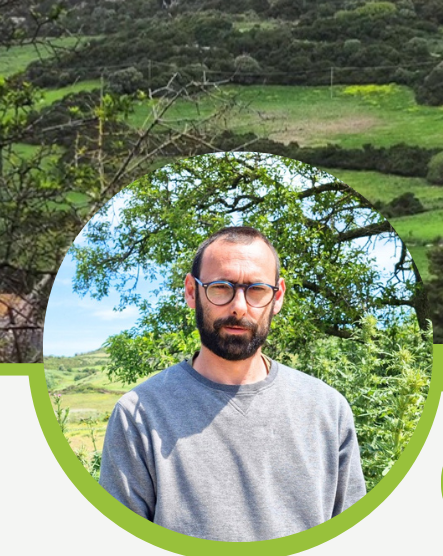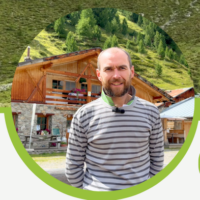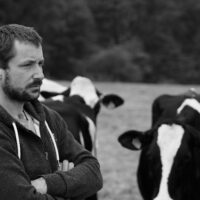Daily rotation of permanent pastures to support sheep milk production
Giuliano PULINAS – Improvement of grassland management
PDF Practice abstract (english)
Description
Practice abstract
Supporting sheep lactation with permanent pastures is a convenient practice both for economic and environmental aspects. Pasture potential depends on soil traits and species present on pasture, as well as on grazing management. Part-time rotational grazing of improved or semi-natural permanent pastures is carried out as management practice in many sheep farms. The sheep farm of G. Pulinas in Sardinia adapted this type of grazing management to the local conditions and sheep grazing preferences. Grazing starts at the early stages of grass growth, when the grass height is about 4-5 cm because plants already have deep roots and sheep cannot damage them. Sheep graze only one day in each grazing paddock, from 9-10 to 16 o’clock. Then, the following day, they are moved to another paddock. This helps pastures to recover promptly from sheep trampling and to re-grow faster because sheep leave an adequate amount of green photosynthesizing plant parts. The pasture surface is always covered with grass and protected from the runoff. Moreover, the farmer assessed that lactation is stimulated by the fresh pasture, because sheep have a higher intake rate. There are 8 grazing plots on the farms, which area spans from 2 to 6 hectares, depending on pasture quality and terrain limitations. The daily rotation of pastures does not involve all of them, but the farmer alternates 2-3 paddocks for a certain period to let sheep graze all the grass and then he moves them to new paddocks. This management can be applied also with the use of mobile fences within the same paddock.
Context profil
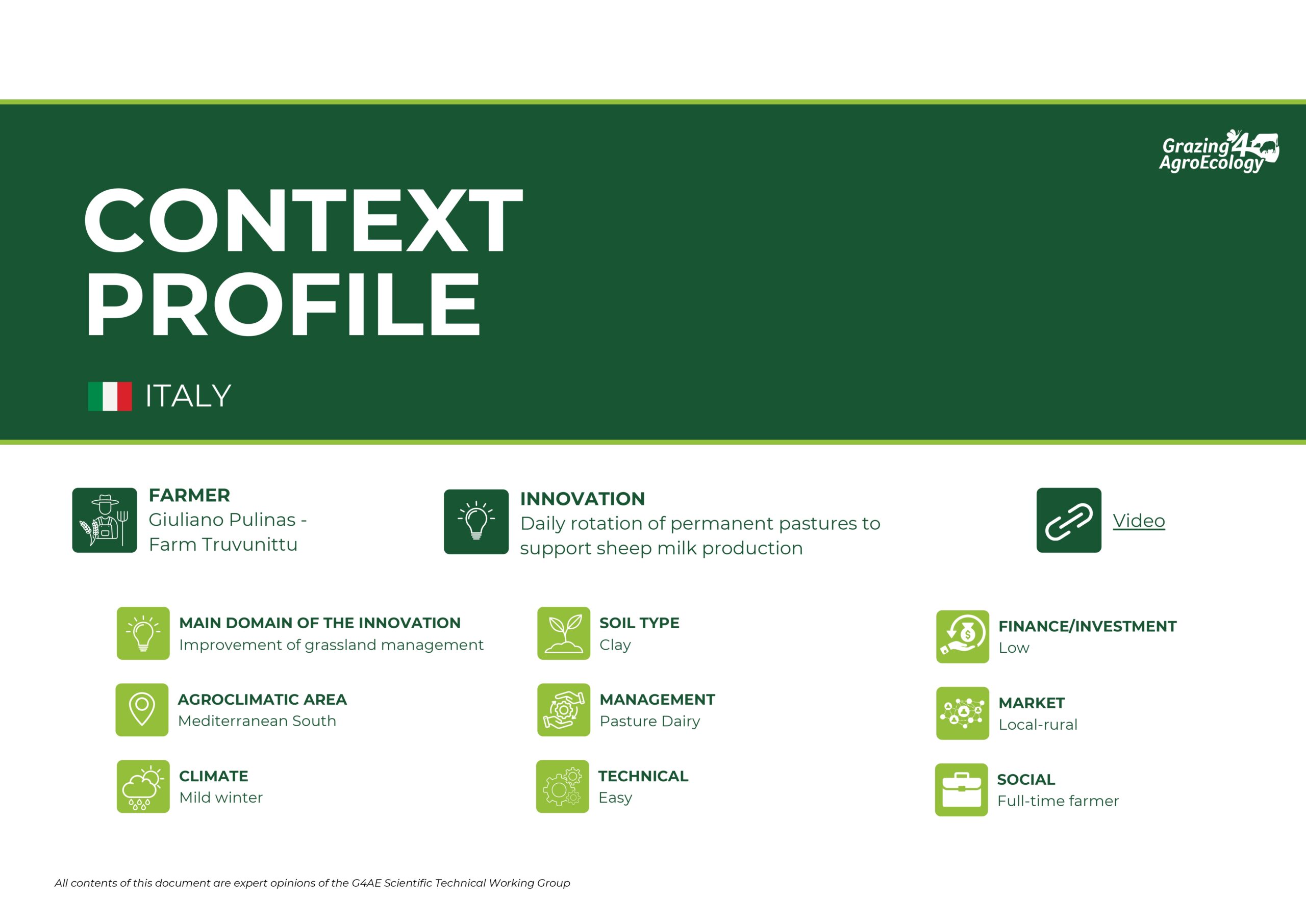
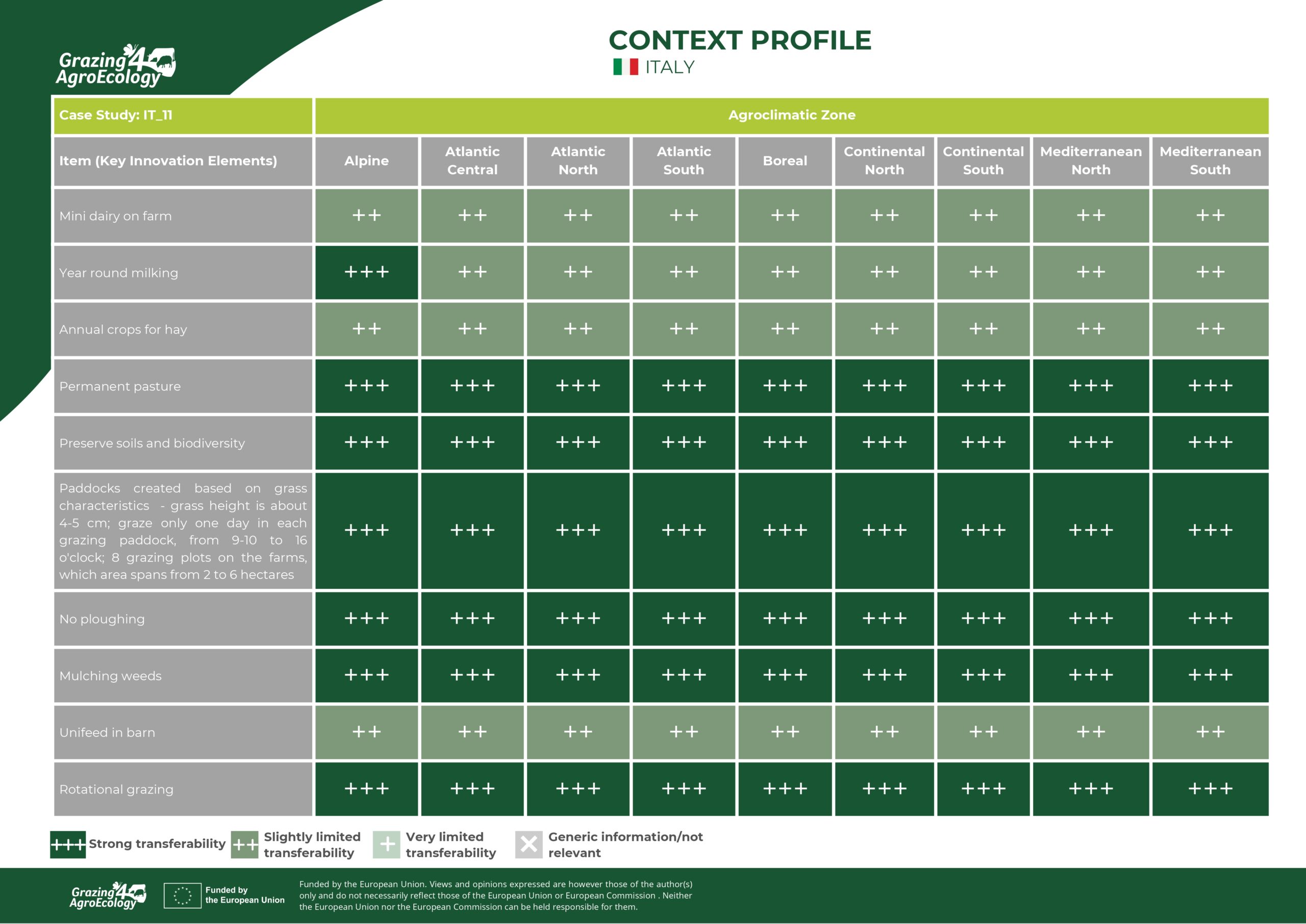
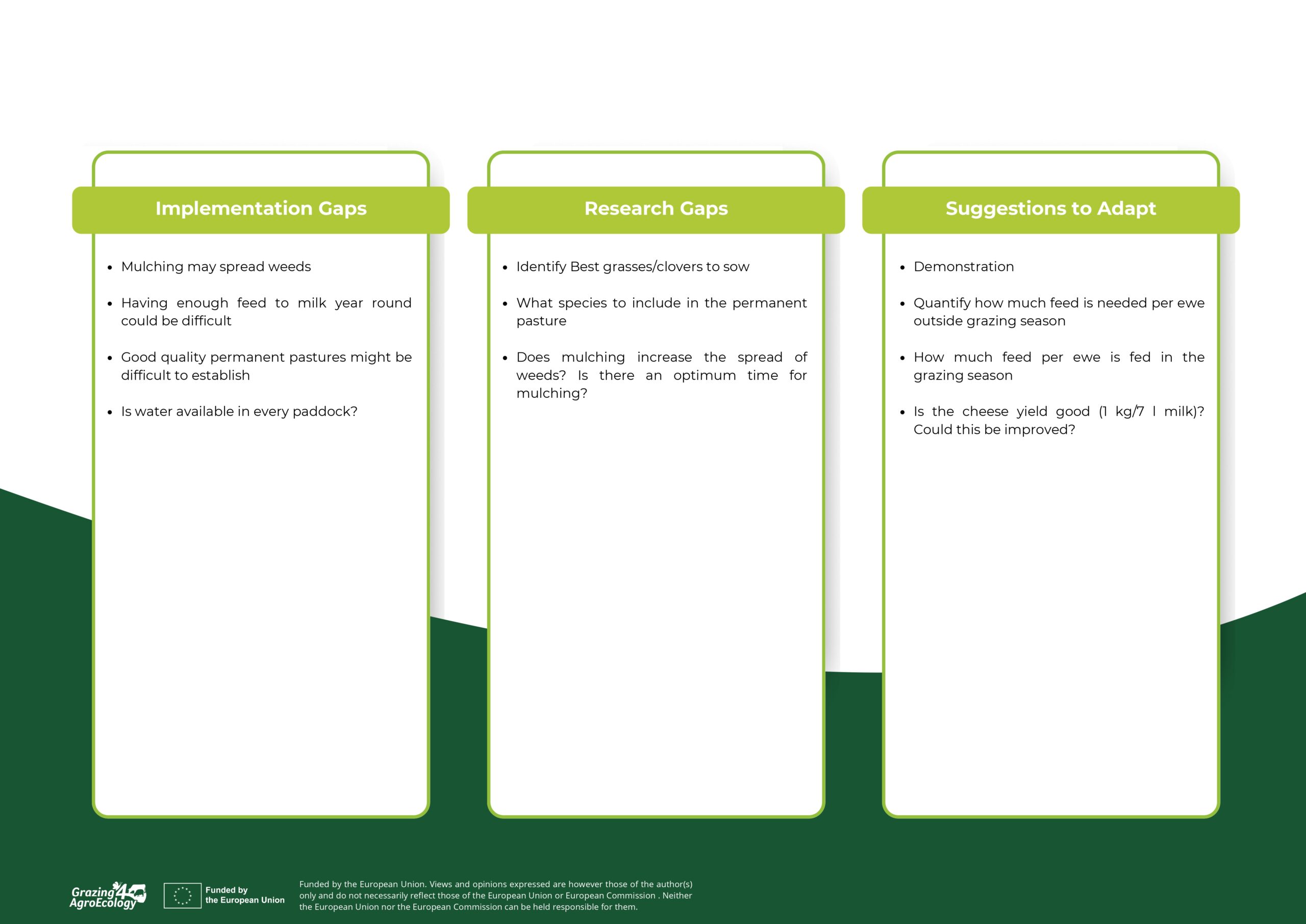
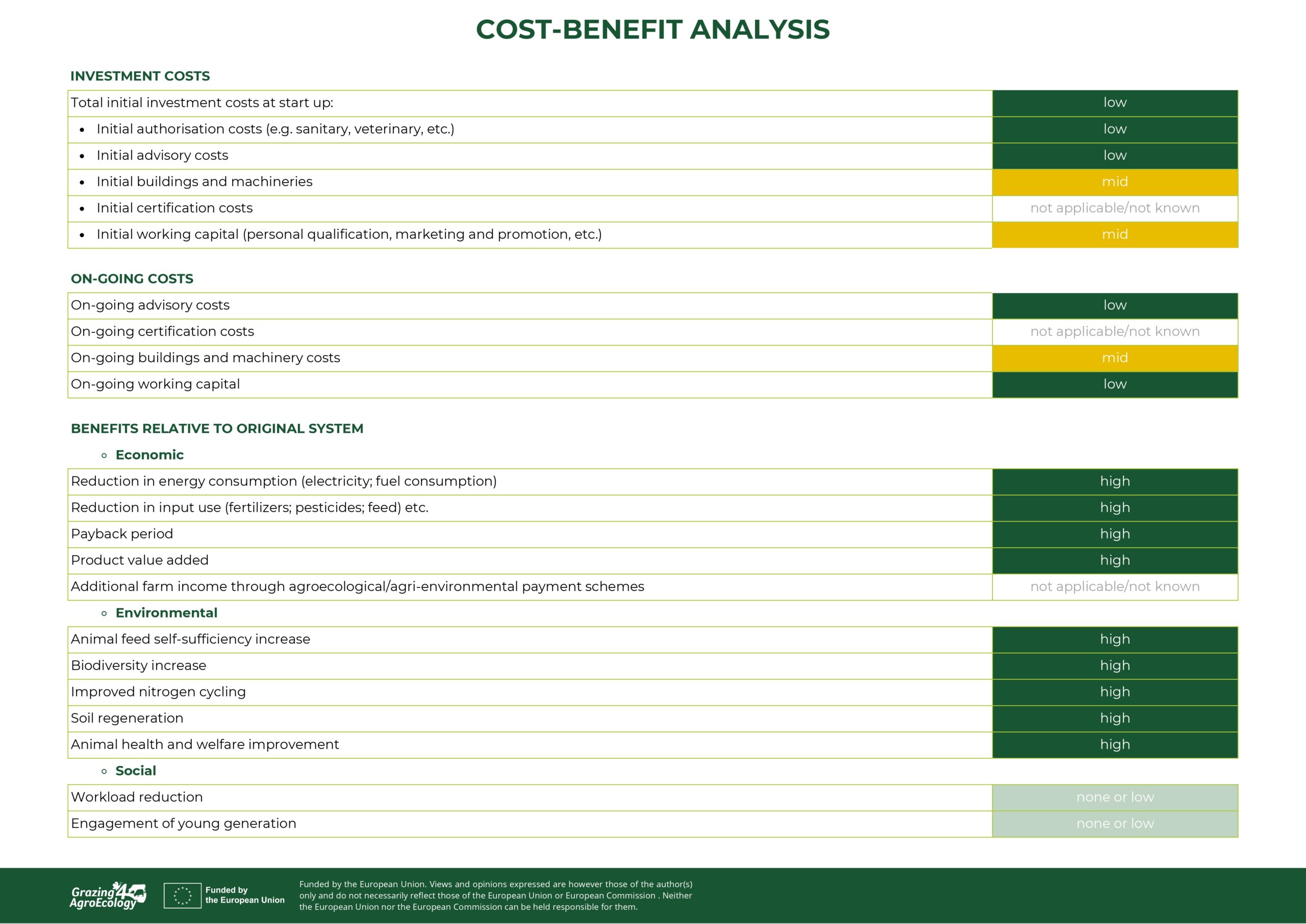
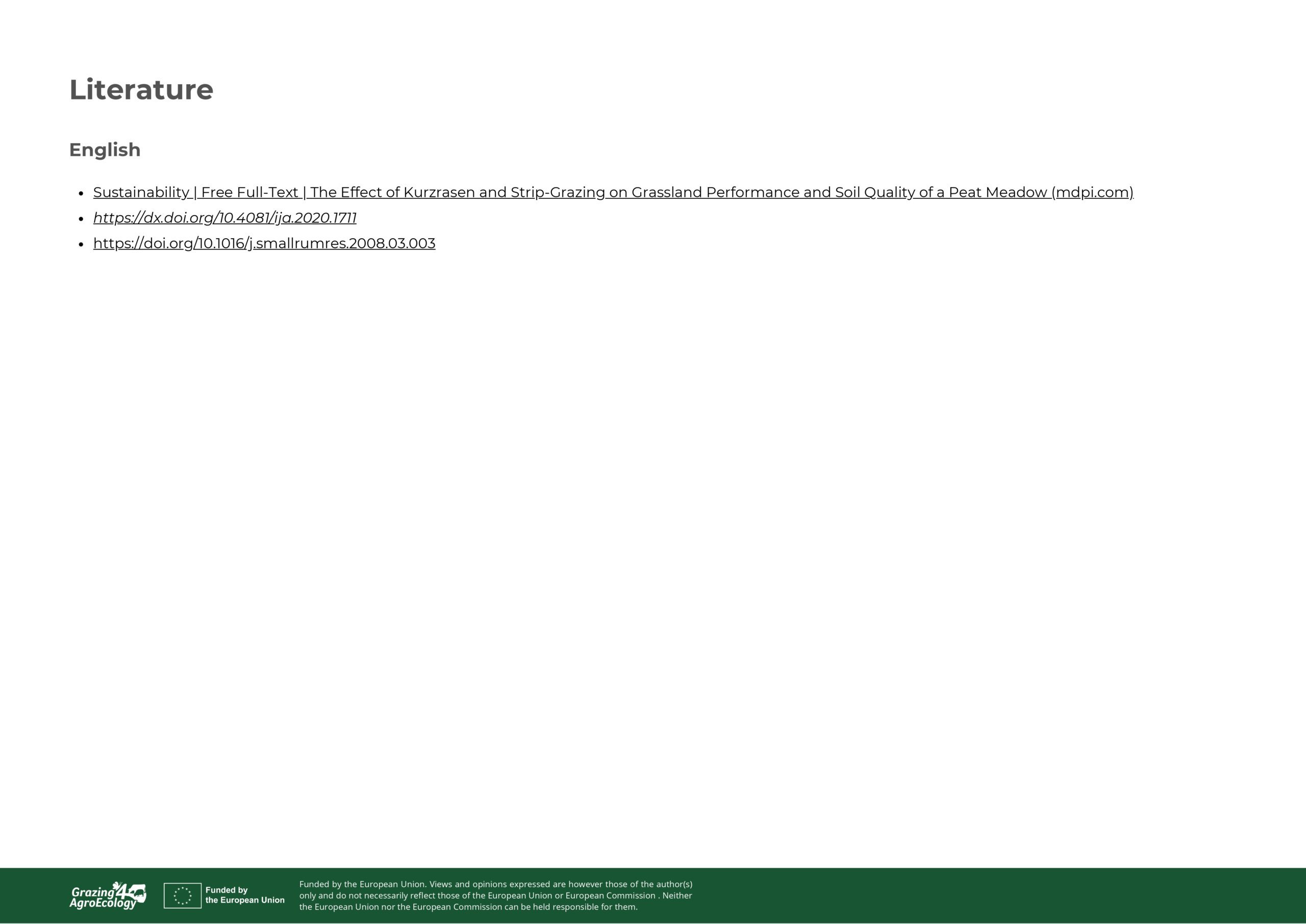
Additional information
| Main domain of innovation | Improvement of grassland management |
|---|---|
| Agroclimatic area | Mediterranean south |
| Climate | Mild winter |
| Soil Type | Clay |
| Management | Pasture dairy |
| Technical | Easy |
| Finance/investment | Low |
| Market | Local-rural |
| Social | Full-time farmer |
